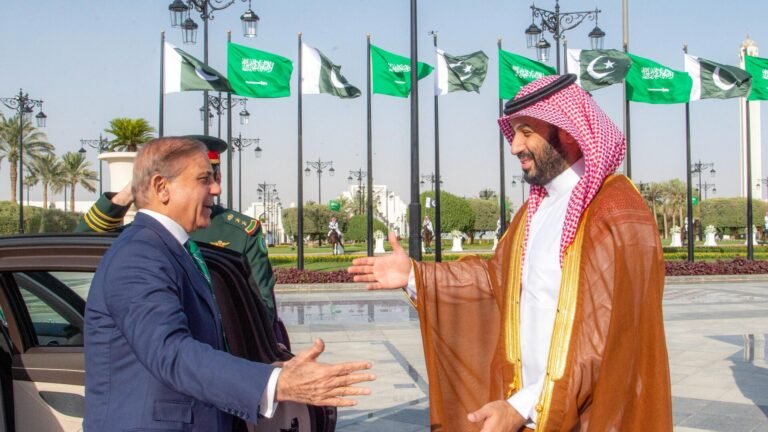Cairo, Egypt – The signing of the Joint Defense Agreement between Saudi Arabia and Pakistan has sparked widespread controversy in political and media circles. It is not just a passing understanding, but rather the declaration of an explicit defense alliance. Any attack on either country is considered an attack on the other.
The agreement came at a tense time, following the Israeli attack on Doha. Gulf confidence in American guarantees also dwindled. This led it to be viewed as a Saudi move toward independent decision-making and expanding the umbrella of protection.
The roots of the relationship between Riyadh and Islamabad
This alliance did not come about out of nowhere; ties between the two countries span decades. Since the 1970s, the Kingdom has relied on Pakistani military expertise to train its pilots and troops. Islamabad also played a supporting role in the first and second Gulf Wars.
Saudi Arabia is Pakistan’s largest economic supporter, having invested billions of dollars and provided aid during times of economic crisis. In exchange, ongoing military and security cooperation has strengthened mutual trust.
Political messages that transcend borders
Observers believe the agreement carries messages that go beyond direct defense. It is a declaration of a partnership with an Islamic nuclear power in the face of growing regional threats. Moreover, it presents Israel with new equations and makes it think twice before embarking on any adventure that could provoke the region.
According to analysts, the agreement could be the nucleus of a broader alliance that includes other Islamic forces. This move paves the way for a regional deterrent umbrella outside the traditional Western framework.
Economic dimension and future prospects
Cooperation is not limited to defense alone, but also extends to the economy and investment. The Kingdom is preparing to increase its investments in Pakistan to more than $25 billion in infrastructure and energy projects. Hence, the alliance is intertwined between security and economic interests.
In this sense, the agreement becomes a strategic pillar that reflects the combination of common interests and a common destiny.
Changing the rules of the regional game
From the “Doha shock” to the “Islamabad alliance,” the region appears to be on the cusp of a new phase in which the balance of power is being redrawn. Saudi Arabia is no longer relying solely on Washington’s umbrella. Rather, it has chosen to diversify its alliances, demonstrating that its security will not be dependent on a single ally.
It is a pivotal moment that may mark the beginning of a game-changing event in the Gulf and South Asia, where history meets reality and interests meet alliances.

















